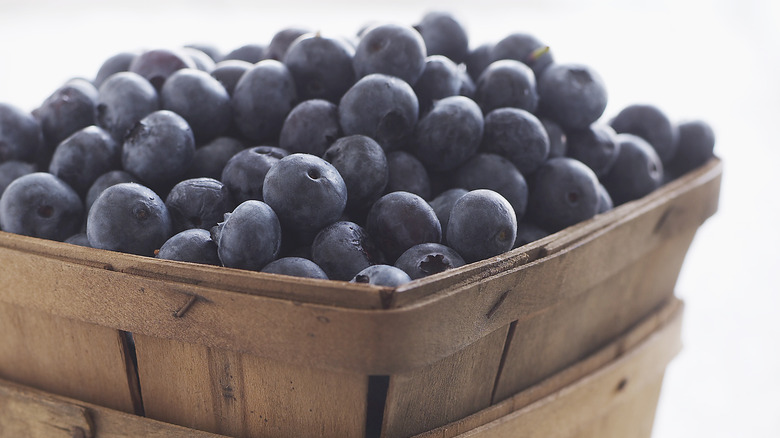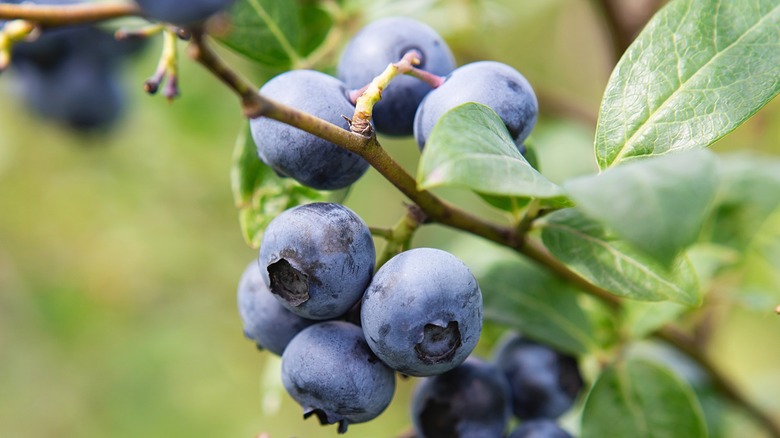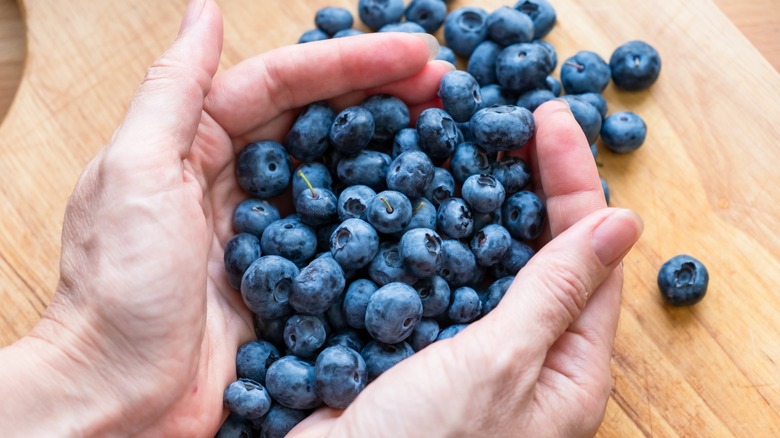How To Salvage Overly Sour Blueberries
Blueberries are one of the best natural treats you can have in your diet. They are sweet, delicious, often inexpensive, and extremely healthy. Blueberries are one of the richest sources of antioxidants in the food world and they contain compounds that improve cognitive function. These amazing little superfoods can help reduce inflammation and boost your immune system, because they are high in vitamins C and E. Want better-looking skin? Eating plenty of blueberries can help with that, too!
But if you have ever bitten into a sour blueberry, you know the real risks of eating these yummy little treats — they can go bad, fast. Instead of a sweet, candy-like health food, you end up with a mouthful of hard, tart berry. Sour blueberries may not be as enjoyable to eat as sweet ones, but they can still be saved in various ways and for many different uses. Here are some of the best ways to salvage your sour blueberries.
All the ways you can save sour blueberries
One of the simplest ways to use sour blueberries is to toss them into a smoothie and mix them with other fruits, honey, cream, or fruit juice to sweeten their flavor. You can also lessen their tartness with a process known as "macerating." To do this, you simply add sugar, honey, or another sweetener to the blueberries to make them more palatable. Mix the sweetener and the berries, then let them sit for a few minutes to allow the flavors to blend together. To keep the berries raw, you can also use them as a topping for pancakes, waffles, or yogurt, or you can combine them in a bowl with sweeter fruits like strawberries, raspberries, or bananas to balance out or mask the sour flavor of the blueberries.
If you think your blueberries are too sour for eating raw, though, you can cook them to help reduce the tartness. You can make a sauce, compote, or jam to use the berries before they go bad, or you can bake them into muffins, pies, bread, or cakes. This works well because the sweetness of the other ingredients can help drown out the sourness of the blueberries, but it also brings out their natural flavor.
Avoiding sour blueberries
If you're worried about buying blueberries that have gone bad, there are some signs you can look for before you even head to the checkout. First, check their appearance. Fresh blueberries should have a smooth and firm skin, with a uniform dark blue color. If you notice any wrinkling, softening, or discoloration of the berries, they may be starting to spoil. Next, you can check their texture. Spoiled blueberries feel mushy or slimy to the touch, or can even have a shriveled or dried-out texture. Spoiled berries will also have a sour smell, or could have mold growing on them. If you notice any of these signs, it's best to discard the blueberries if you are afraid of them being sour.
The shelf life of blueberries can vary depending on the temperature at which they are stored, their ripeness when purchased, and whether they are stored properly. Generally, fresh blueberries can last for up to two weeks when stored properly in the refrigerator, but their flavor will start to decline after the first week. To extend the shelf life of blueberries, it's best to store them in a sealed container in the refrigerator and only wash them right before eating, because berries are delicate. If you wash them, then place them in the fridge, they can break down faster due to the moisture on their skin. If you want to freeze your blueberries for longer storage, they can last for 6-10 months.


